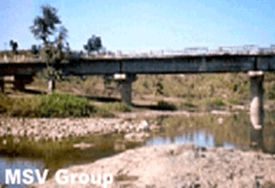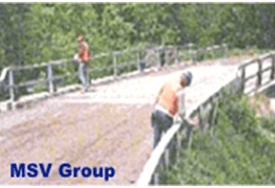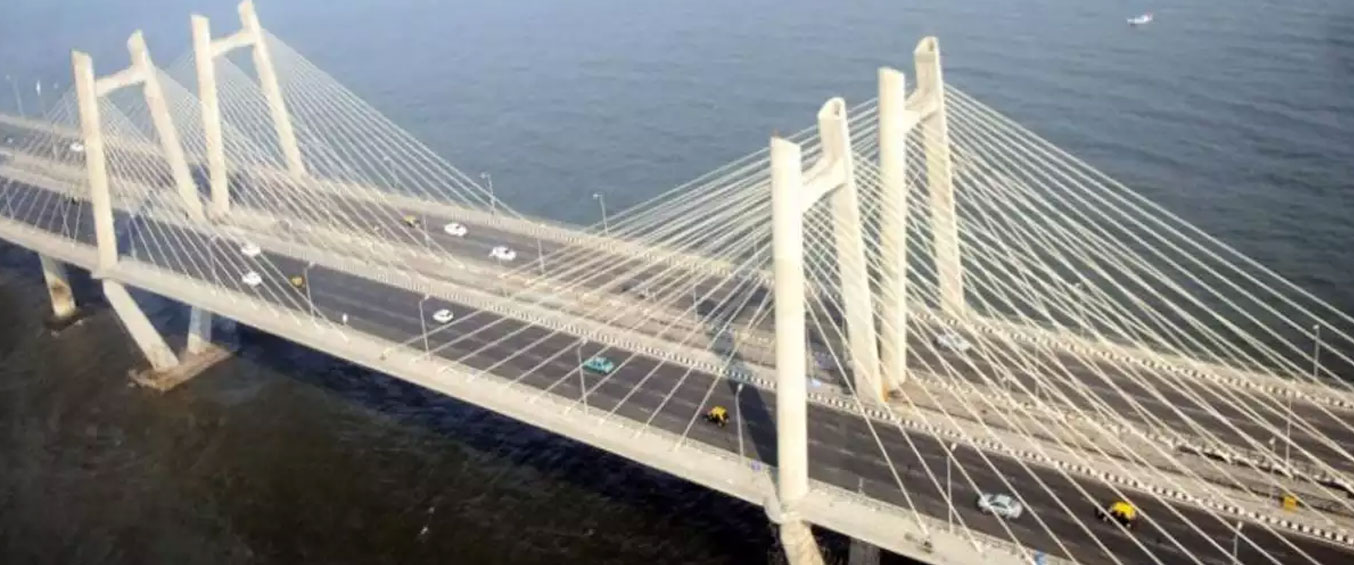Bridges
MSV is proud of its achievements and innovative design ideas in the field of bridges. We are equally proud of our reputation for attention to details in design whether the project is a small pedestrian bridge or a multi-million dollar river crossing .We believe that professional design services should be tailored to each client’s needs and resources.
Armed with advanced technological tools and years of bridge design and construction experience, our engineers seek design solutions that achieve the client’s aesthetic and functional objectives by the most efficient means.
The quality of bridge may be measured by its success in satisfying the basic objectives implicit in its design. These are functional, structural, economic, constructible, durable and aesthetic. We at MSV are good at putting together these objectives. We always carefully estimate the first cost of bridge, spread over its service life, together with its annual maintenance charges. It is the most obvious objective in bridge design and must always be estimated in detail and with care. However, it is misleading to regard cost as the only significant factor affecting the desirability of a design. The minimum cost design is not necessarily the best design. Rather, the choice of the true optimum must take into account such factors as functionality and appearance.
A nation’s economy is dependent upon smooth movement of traffic and in turn soundness of its infrastructure. And because each structure must meet complete structural, environmental and economic needs, MSV has in-house capabilities to provide a broad range of services for bridge projects including:
- Type and feasibility studies.
- Environmental studies.
- Value Engineering.
- Preliminary and final design including earthquake analysis.
- Constructability / Bid ability review.
- Construction management including procurement, contract administration, delays and claim analysis, safety and quality
- Construction Inspection, including shop drawing review and response to contractor’s questions.
- As- built drawings.
- Condition, repair and rehabilitation evaluations.
- Earthquake retrofits analysis.
- Life cycle costs.
When MSV was founded, engineering design and construction services for bridges were backbone of our business. As next pages demonstrate, they remain one of MSV’s mainstays. MSV engineers have experience designing all type of bridges, including.
- Concrete slab
- Concrete box girder
- Pre-stressed concrete girder
- Post-tensioned concrete box girder (span to span or segmental)
- Composite steel girder
- Steel plate girder
- Steel box girder
- Steel truss Tied arch
- Cable stayed
- Vertical Lift
Selecting as bridge type for a particular crossing not only depends on client’s objective and functionality but also on availability of needed materials and construction technology in the area and country of project. Weather also sometimes becomes a factor. Our engineers, keeping all these issues in mind, will develop the best-suited bridge alternate for the crossing.
MSV engineers have experience in designing of the following types of foundations:
- Spread Foundations
- Well Foundations
- Pile Foundations
- Drilled Shaft Foundations
In addition to bridges, MSV has designed various types of retaining walls:
- Reinforced Concrete
- Retaining Walls Reinforced Earth
- etaining Walls
- Soil Nail Retaining walls
- Soil Anchor retaining Walls
- Sheet Pile Retaining Walls
MSV’s highly qualified staffs are provided with full range of computer capabilities to develop most economical and structurally efficient bridges and retaining walls.
We have developed/continually developing in-house programs for analysis and design of bridges. To improve the efficiency of drawing production and better integration of the design and drafting function, computer-aided design is used in preparation of bridge drawings, use of CADD technology offers substantial time and cost savings.
Bridge Distress Investigation & Management
The vast network of roads, highways, railroads and bridges is so much a part of our way of life that it often comes as a shock when a part of that system fails. However, the condition of a vital link in that system “our bridges” has reached the critical stage. Bridges are subject to the adverse elements of weather, heavy traffic, deicing chemicals (in mountain region), accumulated debris and other factors, which may cause deterioration. Many of the bridges were designed and built many years ago to carry fewer and lighter cars and trucks. Without periodic inspection, deterioration may be undetected until some degree of failure occurs resulting in costly repairs or a catastrophe. Proper inspection combined with preventive maintenance can extend the useful life of all types of bridges


Based upon the facts recorded in the detailed field inspection, design specialists analyze the data to determine the structural rating of the bridge elements. Recommendations for structural strengthening or maintenance are submitted for implementation. Normally all of the findings are summarized in a written report which indicates not only the needed repairs, maintenance, or administrative actions such as load posting, but the estimated cost, priorities and other information necessary to develop a sound program of remedial work.

